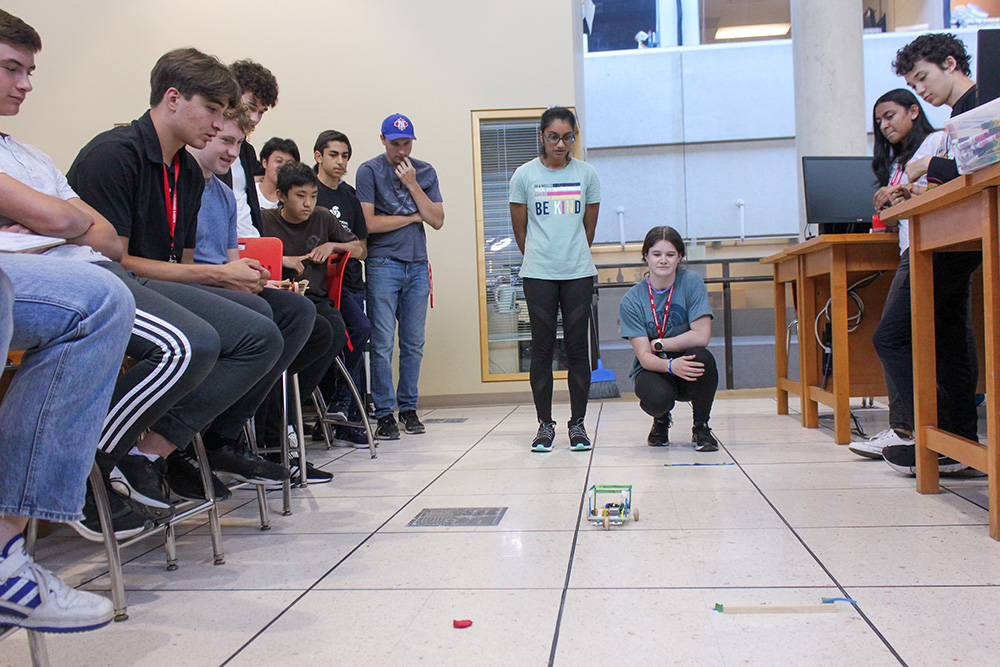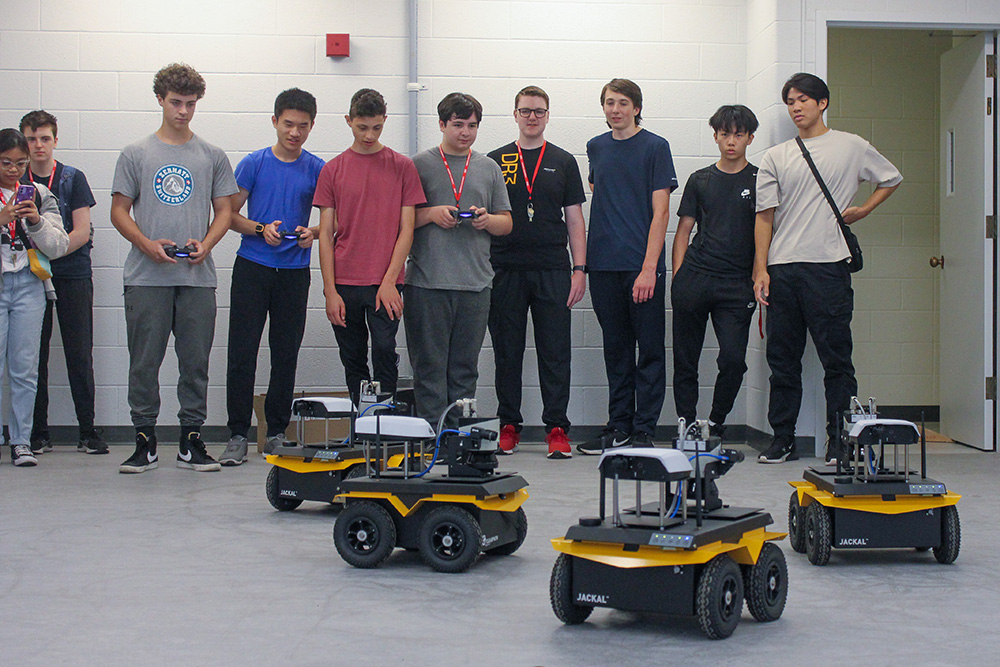The Connections team has tasked itself to inspire young people to consider the ways their dreams and ambitions may incorporate STEM and engineering education and training.
The United Nations Sustainable Development Goals (SDGs), for example, outline what it has identified as “a shared blueprint for peace and prosperity for people and the planet,” all aimed to improve health and education, reduce inequality, and spur economic growth. Though they may not all appear to directly engage the engineering field, they are global challenges, and the Connections team aims to connect student career interests and passions with a profession defined by solving problems.
“What’s powerful about engineering outreach is that students have so much passion for what they are interested in,” says Scott Compeau, Manager of Connections Engineering Outreach. “We help them explore and then say, well, how does engineering fit with your passion?”
“The UN Sustainable Development Goals are an urgent call to action to respond to the big challenges we face in our world,” says Kevin Deluzio, the Dean of Queen’s Engineering. “If we are going to solve these problems, we need to think about how we are educating our future engineers. That’s a big part of what our outreach team is doing today.”
The 17 SDGs identify important global issues, including poverty, climate change, and the development of clean energy systems. Connections programs focus on team-based efforts to solve these problems, with experiential activities that are centered around specific challenges.
Deluzio notes that the complexity of the SDGs requires a collaborative approach. “We need students who can apply their learning to these challenges, but can also work alongside colleagues from business, humanities and other disciplines with diverse perspectives.”
“A hands-on approach enables then to experience many different types of engineering, particularly as they are faced with the natural disasters that are currently impacting societies around the world,” says Ryan Mulligan, Director of the Beaty Water Research Centre. “One of the most important skills they are learning is working in a team and collaborating. The problems we are facing today can’t be solved by one person.”
Compeau adds that this collaborative approach opens the door to many engineering careers and inspires more students to become engaged in STEM learning. “If we can marry their passion with a pathway toward education, that contributes to a more diverse student population, with the skills needed to make our world a better place.”

